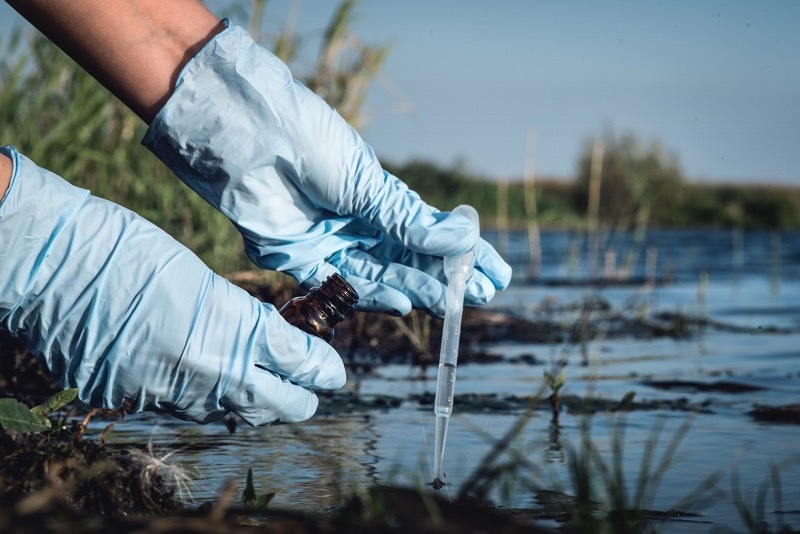A UTILITIES firm which released sewage into Barnsley’s watercourses for thousands of hours last year has been blasted by the Environment Agency in a damning report.
The study said Yorkshire Water was rated a three-star company in 2022, but has now had its rating demoted to two stars following last year’s performance.
It had 26 total pollution incidents per 10,000km of sewer, up from 22 in 2022, while data from the Environment Agency shows sewage from storm overflows was flowing into water bodies in Barnsley for 26,302 hours in 2023, during 3,736 spills.
This was up from 13,228 hours recorded the year before, when there were 2,715 spills in the area.
In Darton, one storm overflow spilled a total of 90 times compared to 50 incidents the year before for a total of 1,362 hours, or about 57 days non-stop.
Meanwhile in Lundwood, an overflow also spilled a total of 90 times for a total of 1,114 hours, the equivalent of around 46 days non-stop.
In Pilley, almost 150 incidents occurred for a total of 2,135 hours whilst in Hoylandswaine and Cawthorne the sewage spilled for more than 3,000 hours combined.
Contained within the untreated effluent is human waste, wet wipes and sanitary products, which pose a serious risk to local wildlife.
Mike Dugher, area director for the Environment Agency in Yorkshire, said: “It is disappointing that Yorkshire Water has dropped to a two-star company.
“We know this is due to its performance around pollution incidents and we are clear that this simply must improve.
“Whilst Yorkshire Water have performed well in some areas such as permit compliance, there is no room for any complacency, and we need to see quicker action from companies to turn things around.
“Our expectations on Yorkshire Water remains high we expect to see them take rapid actions to address their current poor performance including a consistent reduction in the number of pollution incidents and a sustained improvement in the timeliness and quality of self-reporting.
“That is why we will continue our rigorous enforcement activity across Yorkshire ensuring that when companies do commit environmental offences, they are rightly held to account.”
The company self-reported 75 per cent of incidents, below the industry average of 84 per cent, the report confirmed.
Yorkshire Water said the increase is due to the wet weather experienced over the last 12 months, but confirmed a number of projects totalling £13.4m are underway in Barnsley.
These include a £2.4m scheme in Cudworth to reduce storm overflows into the River Dearne.
The investment is expected to reduce the number of discharges from the storm overflow at Small Bridge Dike by 60 per cent.
A Yorkshire Water spokesperson said: “We are committed to improving our region’s rivers and were disappointed about the number of discharges in 2023.
“This increase is due to the wet weather experienced in the 12-month period, which included 11 named storms.
“The weather experienced in the region in 2023 included a very wet summer and prolonged heavy rainfall towards the end of the year resulting in groundwater infiltration into the sewer network.
“Met Office statistics show 1,178mm of rainfall in our area in 2023, the highest level since 2013 and with the second half of the year one of the wettest on record.
“The Met Office named 2023 the sixth-wettest year since its records began in 1836.
“Overflows operate during prolonged or heavy rainfall and multiple storms in close succession can lead to increased discharges due to the storm capacity being used up.
“Our teams worked hard throughout 2023 to reduce discharges as part of our commitment to improve the operation of our network.
“As a result, our modelling indicates investment in our network and changes to our operations since 2021 equate to an improvement of 12,980 discharges when normalised against rainfall.
“Nevertheless, we know there is more to do, and we are making headway with a £180m programme to reduce discharges across the region by April 2025.
“Work is in progress on 62 projects, including a number in the Barnsley area, that will reduce discharges from some of the most frequently operating overflows, with more to follow later in the year.
“This is just the start of a long-term programme to reduce the impact of wastewater on the region’s watercourses and we have submitted plans to Ofwat that outline a further £1.19bn investment in overflow reduction between 2025 and 2030.”



























